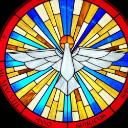Yahoo Answers is shutting down on May 4th, 2021 (Eastern Time) and beginning April 20th, 2021 (Eastern Time) the Yahoo Answers website will be in read-only mode. There will be no changes to other Yahoo properties or services, or your Yahoo account. You can find more information about the Yahoo Answers shutdown and how to download your data on this help page.
Trending News
Who in this world is already looking forward to the great Pagan Day of ISTHER or as the False Babylonian god is more commonly known in ?
English EASTER.
12 Answers
- Old-unLv 63 weeks agoFavorite Answer
Christendoms denominations have observed all the pagan teachings, doctrines and celebrations it's adopted for circa 1600 years and the majority of its followers and others look forward to chocolate eggs, rabbits, hats etc True Christians don't get involved in pagan practices but do celebrate the Memorial as Jesus commanded, this year it is being celebrated after sundown on Saturday 27th March see jw.org for details where you live, it will be held virtually! Read the following about Easter :-What is the origin of Easter and the customs associated with it?
The Encyclopædia Britannica comments: “There is no indication of the observance of the Easter festival in the New Testament, or in the writings of the apostolic Fathers. The sanctity of special times was an idea absent from the minds of the first Christians.”—(1910), Vol. VIII, p. 828.
The Catholic Encyclopedia tells us: “A great many pagan customs, celebrating the return of spring, gravitated to Easter. The egg is the emblem of the germinating life of early spring. . . . The rabbit is a pagan symbol and has always been an emblem of fertility.”—(1913), Vol. V, p. 227.
In the book The Two Babylons, by Alexander Hislop, we read: “What means the term Easter itself? It is not a Christian name. It bears its Chaldean origin on its very forehead. Easter is nothing else than Astarte, one of the titles of Beltis, the queen of heaven, whose name, . . . as found by Layard on the Assyrian monuments, is Ishtar. . . . Such is the history of Easter. The popular observances that still attend the period of its celebration amply confirm the testimony of history as to its Babylonian character. The hot cross buns of Good Friday, and the dyed eggs of Pasch or Easter Sunday, figured in the Chaldean rites just as they do now.”—(New York, 1943), pp. 103, 107, 108; compare Jeremiah 7:18.
- Doug CatholicLv 73 weeks ago
1164 From the time of the Mosaic law, the People of God have observed fixed feasts, beginning with Passover, to commemorate the astonishing actions of the Savior God, to give him thanks for them, to perpetuate their remembrance, and to teach new generations to conform their conduct to them. In the age of the Church, between the Passover of Christ already accomplished once for all, and its consummation in the kingdom of God, the liturgy celebrated on fixed days bears the imprint of the newness of the mystery of Christ.
1165 When the Church celebrates the mystery of Christ, there is a word that marks her prayer: "Today!" - a word echoing the prayer her Lord taught her and the call of the Holy Spirit.34 This "today" of the living God which man is called to enter is "the hour" of Jesus' Passover, which reaches across and underlies all history:
Life extends over all beings and fills them with unlimited light; the Orient of orients pervades the universe, and he who was "before the daystar" and before the heavenly bodies, immortal and vast, the great Christ, shines over all beings more brightly than the sun. Therefore a day of long, eternal light is ushered in for us who believe in him, a day which is never blotted out: the mystical Passover.35
* The Lord's day
1166 "By a tradition handed down from the apostles which took its origin from the very day of Christ's Resurrection, the Church celebrates the Paschal mystery every seventh day, which day is appropriately called the Lord's Day or Sunday."36 The day of Christ's Resurrection is both the first day of the week, the memorial of the first day of creation, and the "eighth day," on which Christ after his "rest" on the great sabbath inaugurates the "day that the Lord has made," the "day that knows no evening."37 The Lord's Supper is its center, for there the whole community of the faithful encounters the risen Lord who invites them to his banquet:38
The Lord's day, the day of Resurrection, the day of Christians, is our day. It is called the Lord's day because on it the Lord rose victorious to the Father. If pagans call it the "day of the sun," we willingly agree, for today the light of the world is raised, today is revealed the sun of justice with healing in his rays.39
1167 Sunday is the pre-eminent day for the liturgical assembly, when the faithful gather "to listen to the word of God and take part in the Eucharist, thus calling to mind the Passion, Resurrection, and glory of the Lord Jesus, and giving thanks to God who 'has begotten them again, by the resurrection of Jesus Christ from the dead' unto a living hope":40
When we ponder, O Christ, the marvels accomplished on this day, the Sunday of your holy resurrection, we say: "Blessed is Sunday, for on it began creation . . . the world's salvation . . . the renewal of the human race. . . . On Sunday heaven and earth rejoiced and the whole universe was filled with light. Blessed is Sunday, for on it were opened the gates of paradise so that Adam and all the exiles might enter it without fear.41
The liturgical year
1168 Beginning with the Easter Triduum as its source of light, the new age of the Resurrection fills the whole liturgical year with its brilliance. Gradually, on either side of this source, the year is transfigured by the liturgy. It really is a "year of the Lord's favor."42 The economy of salvation is at work within the framework of time, but since its fulfillment in the Passover of Jesus and the outpouring of the Holy Spirit, the culmination of history is anticipated "as a foretaste," and the kingdom of God enters into our time.
1169 Therefore Easter is not simply one feast among others, but the "Feast of feasts," the "Solemnity of solemnities," just as the Eucharist is the "Sacrament of sacraments" (the Great Sacrament). St. Athanasius calls Easter "the Great Sunday"43 and the Eastern Churches call Holy Week "the Great Week." The mystery of the Resurrection, in which Christ crushed death, permeates with its powerful energy our old time, until all is subjected to him. - Catechism of the Catholic Church
- JakeLv 43 weeks ago
Easter is a Christian celebration. Jesus is the Divine Son of the One True, Everliving and Triune God.
- melouofsLv 73 weeks ago
I supposed you're trying to be provocative with the wording of your "question". This atheist is someone who generally looks forward to Easter for the family togetherness and special meal, but this year, meh...I don't really care.
- How do you think about the answers? You can sign in to vote the answer.
- Anonymous3 weeks ago
You mean the Christian holiday of Easter, that atheists try to assert isn't Christian? Yes! yes indeed i am looking forward to it!
- UserLv 73 weeks ago
You're drawing a connection
that does not exist in reality.
Appropriately-accredited scholars are agreed
that the legend that the word "Easter" derives from the similar-sounding "Ishtar"
has no basis in fact.
Instead
the consensus of scholars
is that the word "Easter" derives from the Germanic goddess "Eostre".
More importantly
this condemnation of the title of the holiday
is only significant in English and German.
In other languages
the name of the holiday
is the same as the word meaning "Passover".
Are you going to tell us that Latin Easter or the Greek Easter - either of which was probably the original Easter celebration - comes from Ishtar?
So...how is it
that a word "Ishtar" that existed in Babylonian times
and then fell out of use for centuries
came to be adopted by the Germans and then English for Easter
but was not adopted by Christians living for the several centuries earlier
who were celebrating that same holiday for centuries?
- Anonymous3 weeks ago
Easter doesn't get its name from a Babylonian anything. In Latin and in Aramaic, the Ancient Hebrew dialect spoken by Jesus and the Apostles, the name is "Pascha." In English, the name "Easter" derives from the Saxon name "Eostre," the name of the pagan goddess of spring and the name of the pagan spring celebration.
As the Roman Empire expanded and proselytized Christianity as its state religion in conquered lands, the Roman Catholic Church found conversion easier and more successful by appropriating existing local cultural traditions and their names and then transforming them into Christian traditions and holidays. That's because it proved difficult to impossible to get the locals to just suddenly give up their culture and their traditions when converting them, but instead converting them to Christianity proved far easier and far more successful by redirecting their culture and their traditions into underpinning new Christian beliefs, so that became the standard practice. That's why when the Romans conquered Britannia and started converting Britannia to Christianity, the Roman Catholic Church appropriated the name "Easter" and some of its cultural traditions from the Saxons and incorporated them into the Christian celebration of Jesus Christ's Resurrection called "Pascha," the church not being apostatized by that as the name "Pascha" remained the name used by the Church in church since services in church were always conducted entirely in Latin, the name "Easter" only being used by priests and others vernacularly outside of church to refer to Pascha.
That's why it's only called "Easter" in English and not in Latin or Hebrew, for if "Easter" had been a loan word from Ancient Babylon, which could've only occurred when the Jews were exiled there circa 600 BCE, "Easter" (or some cognate of it) would be its name in Latin and in Hebrew, but it's not.
- Anonymous3 weeks ago
"Nobody knows what day Jesus was really born"
Because he never was born. Jesus never existed,
and nobody has ever proven otherwise. Even Matthew
and Luke each messed-up by tying his birth to an event -
and they missed each other by over a decade! LOL!!
- Anonymous3 weeks ago
Wish my mother was here she would tell you not to ruin this holiday for little kids. Nobody knows what day Jesus was really born and there is no doubt in my mind he want kids to have this to look forward to. Easter is about many things and do not hurt others who enjoy this holiday by saying sad things please. Different religions observe different Holidays and is best to be respectful. I knew a family of Jehovah's Witnesses who made a yearly present day in the summer to replace Christmas. Please just honor that not all on here have the same beliefs.








